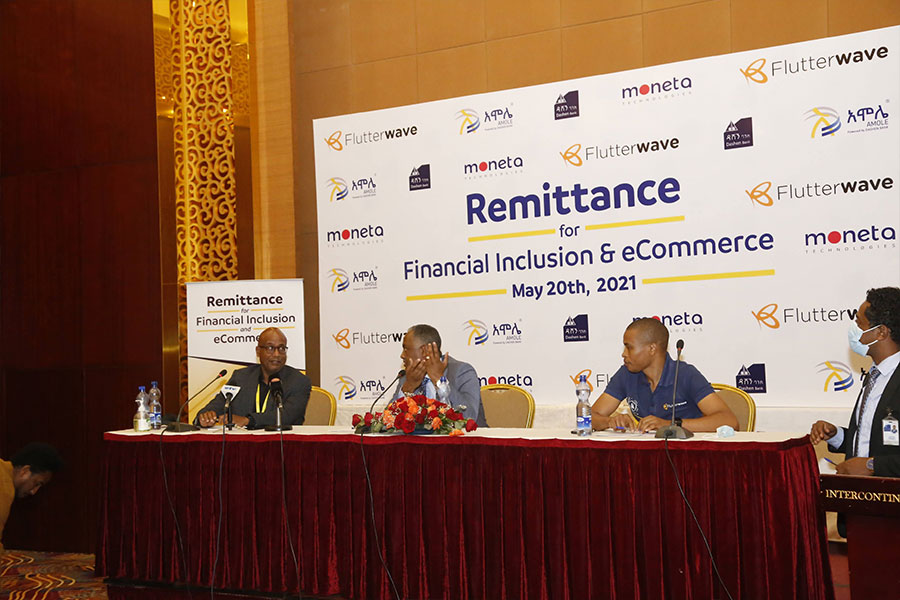
Radar | Oct 01,2022
May 15 , 2021
By Christian Tesfaye
It is nothing less than surprising that the digital space is becoming the most exciting space to be in right now in Ethiopia. I would have barely believed it a few years ago.
After taking the national exams, I remember us debating as high school seniors which field offered the best investment on our years of education. This was nearly a decade ago, so I elected the engineering field. Construction was booming. The streets were being turned into asphalt road everywhere and buildings seemed to snake up from every nook and cranny in the city. Money was obviously pouring into the industry. For a person with tolerable math skills such as me, a profession in engineering in a roaring construction industry seemed to be the clear choice.
It was only later that I found out that, with the government’s encouragement, nearly most high school graduates across the country were making the same calculation. By the time I graduated five years later in 2017, the sector had become saturated while foreign currency shortages and gross corruption had sucked the air out of it.
Meanwhile, a bunch of my friends had chosen computer science as an undergraduate degree. They grew up playing video games and obsessing about apps and tech gadgets. They also thought it was a lot less backbreaking than engineering – it takes one less year to get a degree in computer science in public universities.
To their surprise and mine, the momentum is with the digital space. Sure, it will be quite a while before it becomes the driver of the economy, as the construction industry has been, or before it goes on to employ anywhere as many people. But the two areas of growth that show unprecedented potential and excitement in Ethiopia are innovations and competitions in the digital and garments industry.
Look no further for this than e-payment platforms. Anyone who sits in a café somewhere in Addis Abeba has a good chance that some E-Birr or CBE Birr representative would try to get them to open an account. And no wonder - the competition is fierce.
Last week, Ethio telecom launched Telebirr, a mobile payment platform that would pose a formidable challenge to the non-interoperable e-payment services provided by financial institutions. Some 44 million users of the telecom giant would pay, withdraw and deposit money using the platform.
Banks have yet to seriously consider how unattractive it is to use a mobile money outlet by one of them where the customer does not have an account. I will not go to the trouble of depositing money at a payment agent every time my mobile money account runs out just to use a service that is, in any case, severely underdeveloped.
Fortunately, EthSwitch plans to come to the rescue, currently piloting an interoperability service between the different commercial banks' mobile payment services. If it becomes as smooth as the seamless interbank service of ATMs – from anecdotal evidence, I cannot say the same about point-of-sale (PoS) terminals – it could mean that the various mobile outlets the banks have been coming up with have a fighting chance.
It does not stop there, though. Fin-tech will also be shining bright with the entry into the market of non-financial institutions other than Ethio telecom. There is Sunpay Solutions, which has come with 100 million Br in capital last March to enter the market. In the same month, ArifPay raised 140 million Br to become a digital payment platform.
The growth in e-payment services will have an advantage much greater than the immediate benefits of mobile banking, such as creating employment opportunities in fin-tech and increasing deposits for banks. It will also mean that digital content could be monetised. But in an environment where it could not, where the legal and infrastructural tools are lacking, there would be no incentives for investments in the digital space.
We already see how developments in the wider digital space, from taxi-hailing apps and delivery services to content streaming sites and ad services, are impacting the economy. The potential to become one of the essential drivers of the economy, especially the service sector, is high. It is not the construction industry yet, but bar disruptions strong enough to put the brakes on such impressive momentum – legal or political – it is only a matter of time.
Christian Tesfaye (christian.tesfaye@addisfortune.net) is a researcher and Fortune's Op-Ed Editor whose interests run amok in the directions of both print and audiovisual storytelling.
PUBLISHED ON
May 15,2021 [ VOL
22 , NO
1098]


Radar | Oct 01,2022

Life Matters | May 20,2023

Agenda | Mar 27,2021

Agenda | Jun 05,2021

Covid-19 | Jun 13,2020

Fortune News | Jun 04,2022

Fortune News | Apr 29,2023

Exclusive Interviews | Jan 27,2024

Fortune News | Nov 03,2024

Radar | May 24,2025

My Opinion | 132105 Views | Aug 14,2021

My Opinion | 128507 Views | Aug 21,2021

My Opinion | 126435 Views | Sep 10,2021

My Opinion | 124046 Views | Aug 07,2021





Dec 22 , 2024 . By TIZITA SHEWAFERAW
Charged with transforming colossal state-owned enterprises into modern and competitiv...

Aug 18 , 2024 . By AKSAH ITALO
Although predictable Yonas Zerihun's job in the ride-hailing service is not immune to...

Jul 28 , 2024 . By TIZITA SHEWAFERAW
Unhabitual, perhaps too many, Samuel Gebreyohannes, 38, used to occasionally enjoy a couple of beers at breakfast. However, he recently swit...

Jul 13 , 2024 . By AKSAH ITALO
Investors who rely on tractors, trucks, and field vehicles for commuting, transporting commodities, and f...

Jul 12 , 2025
Political leaders and their policy advisors often promise great leaps forward, yet th...

Jul 5 , 2025
Six years ago, Ethiopia was the darling of international liberal commentators. A year...

Jun 28 , 2025
Meseret Damtie, the assertive auditor general, has never been shy about naming names...

Jun 21 , 2025
A well-worn adage says, “Budget is not destiny, but it is direction.” Examining t...

Jul 13 , 2025 . By YITBAREK GETACHEW
The Addis Abeba City Revenue Bureau has introduced a new directive set to reshape how...

Jul 13 , 2025 . By BEZAWIT HULUAGER
Addis Abeba has approved a record 350 billion Br budget for the 2025/26 fiscal year,...

Jul 13 , 2025 . By RUTH BERHANU
The Addis Abeba Revenue Bureau has scrapped a value-added tax (VAT) on unprocessed ve...

Jul 13 , 2025 . By NAHOM AYELE
Federal lawmakers have finally brought closure to a protracted and contentious tax de...